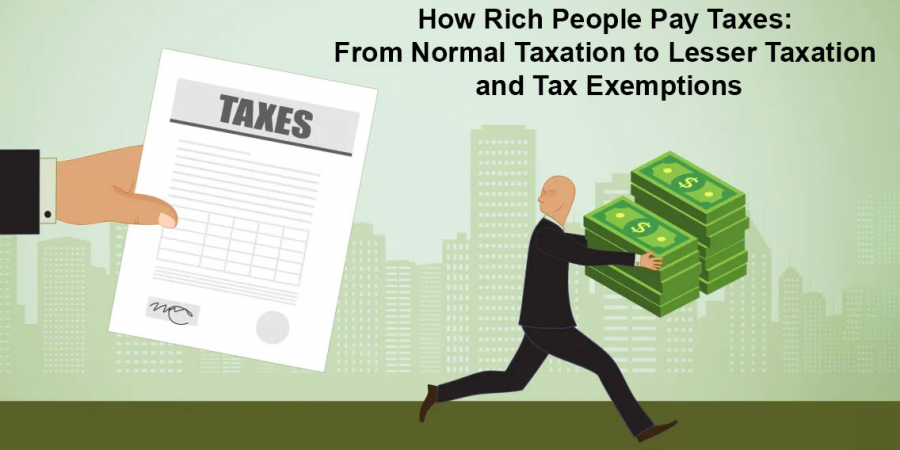

Taxes are essential for funding government programs and services, but the way taxes are paid can vary significantly based on income level, deductions, and financial strategies.
Rich people often employ various methods to minimize their tax burden, including taking advantage of tax deductions, credits, and exemptions.
This article explores how rich individuals pay taxes, from standard taxation to lesser taxation and even tax exemptions, with real-life examples to illustrate these concepts.
1. Normal Taxation :
- Rich people, like everyone else, are subject to income tax based on their earnings from various sources, including wages, investments, and businesses.
- They pay taxes at the applicable income tax rates, which can vary depending on their total income and filing status.
- Example : A wealthy executive earning a high salary from their job would pay income tax based on their earnings, similar to any other employee.
2. Lesser Taxation :
- Wealthy individuals often employ tax planning strategies to reduce their taxable income or take advantage of preferential tax rates.
- This can include maximizing deductions, such as charitable contributions, mortgage interest, and business expenses, to lower their taxable income.
- Investing in tax-advantaged accounts like retirement plans or utilizing capital gains tax rates for investment income can also result in lesser taxation.
- Example : A wealthy investor strategically structures their investment portfolio to generate long-term capital gains rather than ordinary income, benefiting from lower capital gains tax rates.
3. No Tax :
- In some cases, rich people may legally avoid paying income tax altogether through various means, such as tax credits, deductions, and exemptions.
- Tax credits, like the earned income tax credit or renewable energy tax credits, can offset tax liability dollar-for-dollar, potentially resulting in no tax owed.
- Certain income sources may be exempt from taxation, such as municipal bond interest or income from qualified retirement accounts like Roth IRAs.
- Example : A wealthy philanthropist donates a significant portion of their income to charitable causes, utilizing charitable deductions to reduce their taxable income to zero.
Conclusion :
Rich people navigate a complex tax landscape, employing various strategies to minimize their tax liability, from utilizing deductions and credits to strategically managing their investments and income sources.
While some may criticize these practices as unfair or exploitative, it's important to recognize that many tax-saving strategies are legal and accessible to anyone, regardless of income level.
By examining real-life examples, we can appreciate the nuances of taxation and the ways in which individuals, regardless of wealth, can make informed decisions to manage their tax obligations effectively.
